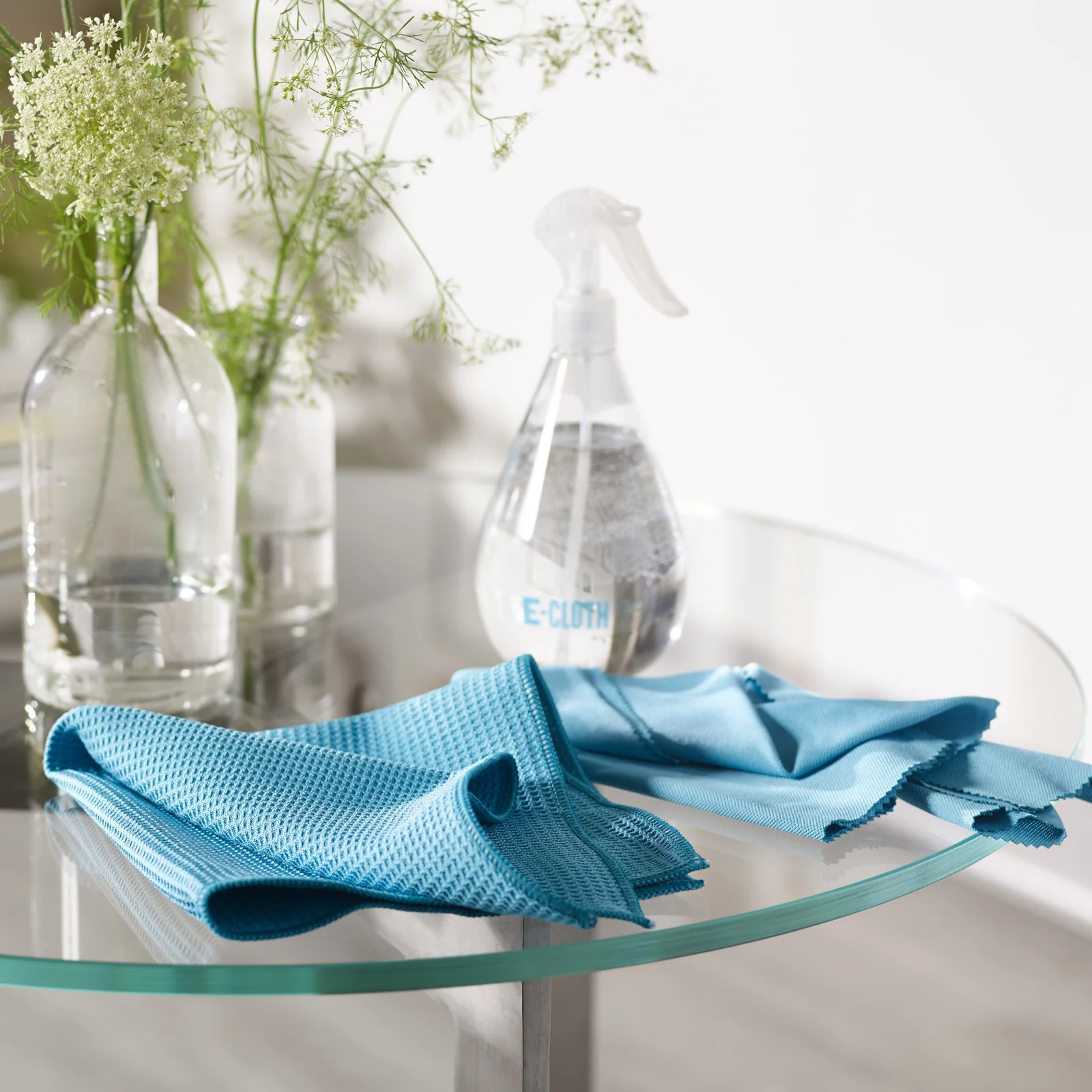Table of content:
How Often You Should Clean Your Windows
Consequences of Skipping Windows Cleaning
DIY Methods to Clean Your Windows
Keeping your windows clean is essential not just for a brighter, more inviting home, but also for maintaining the longevity and function of your windows. How often you should clean them depends on your environment—urban, rural, or coastal settings each present unique challenges—and seasonal factors like pollen or rain can also play a role. Regular cleaning helps prevent buildup that can dull natural light, damage glass, and even impact indoor air quality. By understanding your specific needs and staying attentive to visible signs of dirt or residue, you can create a cleaning schedule that keeps your windows looking their best and your home feeling fresh.

A Clean You Can See
Our high-performance microfiber products simplify cleaning, making it quick, easy, and effective, so you can enjoy visible results without the fuss. No streaks, just results.
How Often You Should Clean Your Windows
How Often to Clean Windows Based on Your Environment
- Urban Areas: If you live in a city with heavy traffic and pollution, consider cleaning your windows every two to three months. The constant exposure to smog and dust can create a film that diminishes natural light and can be tougher to remove over time.
- Suburban or Rural Settings: In areas with less industrial activity and lower pollution levels, cleaning your windows twice a year is typically sufficient. Fewer airborne particles mean the glass stays clearer for longer periods.
- Coastal Regions: Living near the ocean often means dealing with salt deposits in the air, which can leave a residue on your windows. In such cases, cleaning every two to three months can help manage buildup before it etches into the glass.
Seasonal Factors to Consider
- Spring and Fall: These seasons bring significant environmental changes. Spring pollen and fall dust can accumulate quickly, so a seasonal deep clean can keep your windows gleaming and help maintain optimal light quality.
- Rainy Seasons: After extended periods of rain, water spots can form if mineral deposits are left unaddressed. Once the weather clears, it may be worthwhile to give your windows a once-over to remove any stains before they set in.
Other Key Considerations
- Indoor Windows: Windows facing high-traffic areas or near kitchens and hallways may require more frequent attention—often monthly or as needed—to keep up with smudges, fingerprints, and airborne dust.
- Visible Buildup: Regardless of the season or location, if you notice a reduction in natural light or a noticeable film on your glass, it’s a signal that cleaning is overdue. Adjust your schedule based on what you observe rather than strictly following a calendar.
Streak-Free Wherever You Need It
E-Cloth is committed to delivering a clean you can see—effortlessly erasing messes with just water for a spotless shine, free of streaks and added chemicals.

Consequences of Skipping Windows Cleaning
Consequences of Skipping Windows Cleaning
- Reduced Natural Light: Dirt, dust, and grime build up on glass, blocking sunlight and making your rooms feel dim and dreary. Even a thin film can noticeably dull your view and the overall brightness of your space.
- Window Damage Over Time: When you let debris, hard water spots, or even bird droppings linger, they can etch into the glass or corrode window frames. This can lead to permanent marks, scratches, or even the need for costly repairs or replacements down the line.
- Compromised Window Function: Gunk in tracks and sills isn’t just unsightly—it can make windows tough to open or close. Over time, this buildup can cause mechanical parts to stick or break, turning a simple clean into a bigger maintenance headache.
- Worsened Indoor Air Quality: Dust and pollen that collect on windows can get stirred up every time you open or close them, sending particles back into your home. This can be especially noticeable for anyone with sensitivities or allergies.
- Uninviting Appearance: Let’s be real—smudged, streaky windows make even the tidiest room look neglected. Clean windows are like a fresh haircut for your home: they instantly boost curb appeal and make your space feel more welcoming, inside and out.
- Shortened Window Lifespan: Neglecting regular cleaning can speed up wear and tear on seals, frames, and glass. This can lead to drafts, leaks, and higher energy bills as your windows lose their insulating power.
- Missed Opportunity for Early Repairs: Regular cleaning is a chance to spot small issues—like cracks, gaps, or failing seals—before they turn into expensive problems. Skipping this step means you might not notice damage until it’s too late.
DIY Methods to Clean Your Windows
.svg)
Vinegar and Water Solution
Combine equal parts white vinegar and water in a spray bottle. Spray the solution onto windows, then wipe clean with a microfiber cloth or newspaper. This DIY cleaner dissolves grime and leaves glass sparkling without streaks.
.svg)
Rubbing Alcohol and Distilled Water
Mix equal parts rubbing alcohol and distilled water in a spray bottle. Spray onto the glass and wipe with a microfiber cloth or newspaper for a streak-free shine. This solution evaporates quickly, helping to remove fingerprints and grime without leaving residue.
.svg)
Baking Soda and Lemon Juice Paste
Mix equal parts baking soda and freshly squeezed lemon juice to form a paste. Apply the paste to the glass using a soft cloth or sponge, gently scrubbing any spots or stains. Wipe clean with a damp cloth, then buff dry with a microfiber cloth for a sparkling, streak-free finish. This natural paste helps remove grime and leaves windows shining.
.svg)
Club Soda Spray
Pour club soda into a spray bottle and spray directly onto the glass. Wipe with a microfiber cloth or newspaper for a streak-free shine. The carbonation in club soda helps lift dirt and grime, leaving windows sparkling clean.
.svg)
Streaks Remain Visible
Streaks remain visible because vinegar and water may not fully dissolve or remove all residues, especially if windows are very dirty or if too much solution is used, leaving behind streaks after drying.
.svg)
Residue Buildup Risk
If not wiped thoroughly, rubbing alcohol and distilled water can leave streaks or residue on windows, attracting dust and reducing clarity. Improper mixing or excess solution may also cause buildup, making windows appear cloudy over time.
.svg)
Limited Deep Cleaning
Baking soda and lemon juice paste may not effectively remove tough stains, grime, or hard water spots from windows, resulting in limited deep cleaning compared to commercial cleaners or professional methods.
.svg)
Ineffective Dirt Removal
Club soda spray may not effectively dissolve or lift stubborn dirt, grease, or grime from windows, leading to streaks and residue. Its mild cleaning power is often insufficient for thorough window cleaning compared to specialized cleaners.
Ready for an Easier Way to Clean?
Skip the mixing, spraying, and scrubbing. With E-Cloth, you get a streak-free shine using just water—no added chemicals, no hassle. Make every window sparkle the simple way.
Explore other Articles
Headphones
Learn how often to clean your headphones for optimal sound and hygiene. Simple tips to keep them fresh and lasting longer.
Bookshelves
Discover the ideal frequency to clean your bookshelves for a dust-free, organized, and fresh home library.
Jeans
Discover the ideal frequency to clean your jeans for lasting style, comfort, and fabric care. Keep them fresh and durable!
Range hood filter
Learn how often to clean your range hood filter for optimal kitchen air quality and appliance efficiency. Keep it fresh and safe!
Washing machine
Learn how often to clean your washing machine for optimal performance and freshness. Keep your laundry fresh and your machine efficient!
Garage floors
Discover the ideal frequency for cleaning your garage floors to keep them spotless and well-maintained year-round.
Experience Real Cleaning
A Clean You Can See
Experience Real Cleaning


